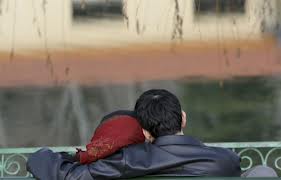
Washington, October 18: Hindus and Muslims are less likely than Christians and Jews to have premarital sex, and Muslims are least likely among people of these religious groups to get involved in extramarital sex, a new study has revealed.
Co-authored by Amy Adamczyk, Associate Professor of Sociology at John Jay College of Criminal Justice, and Brittany Hayes, Ph.D. student in John Jay's Criminal Justice program, the study, ‘Religion and Sexual Behaviors: Understanding the Influence of Islamic Cultures and Religious Affiliation for Explaining Sex Outside of Marriage,' analysed data on premarital and extramarital sexual behaviours in over 30 developing countries around the world.
According to the researchers, Muslims' lower likelihood of premarital and extramarital sex is related to their commitment to, and community support for, strict religious tenants that only permit sex within marriage.
Adamczyk and Hayes also found that national Islamic cultures influence the sexual behaviors of all residents, even people who do not identify themselves as Muslim.
The authors posit that religion tends to have a more powerful effect than restrictions on women's movement in many Muslim countries.
“One of the most surprising findings was that religious affiliations have a real influence on people's sexual behaviors,” Adamczyk said.
“Specifically, Muslim and Hindus are significantly less likely to report having had premarital sex than Christians and Jews. One of the novelties of our study is our analysis of behaviors, rather than attitudes.
“While a lot of research attention has been given to understanding differences between the major world religions in adherents' attitudes, much less attention has been given to understanding differences based on behaviors,” she said.
The study is published in the American Sociological Review.





Comments
Add new comment